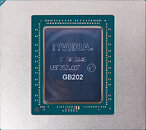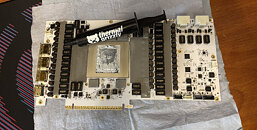
ASUS RTX 5090 Dhahab Edition Raises $24,200 in Charity Auction
ASUS has recently held a charity auction with special edition ROG Astral GeForce RTX 5090 Dhahab Edition graphics card signed by NVIDIA's CEO, Jensen Huang. ASUS managed to raise $24,200, which will go to the TZU CHI USA Foundation, a volunteer-based non-governmental organization providing charitable assistance, medical aid, disaster relief, and educational services, and environmental protection programs to those in need.
The auction period lasted from June 4 to June 13, and showing how tight the race was, the three highest bidders were just $10 apart. As the ROG Astral GeForce RTX 5090 Dhahab OC Edition is quite a rare graphics card and sold exclusively in the Middle East, the one signed by Jensen Huang is quite a catch. Hopefully, it won't end up on eBay.
The auction period lasted from June 4 to June 13, and showing how tight the race was, the three highest bidders were just $10 apart. As the ROG Astral GeForce RTX 5090 Dhahab OC Edition is quite a rare graphics card and sold exclusively in the Middle East, the one signed by Jensen Huang is quite a catch. Hopefully, it won't end up on eBay.































































